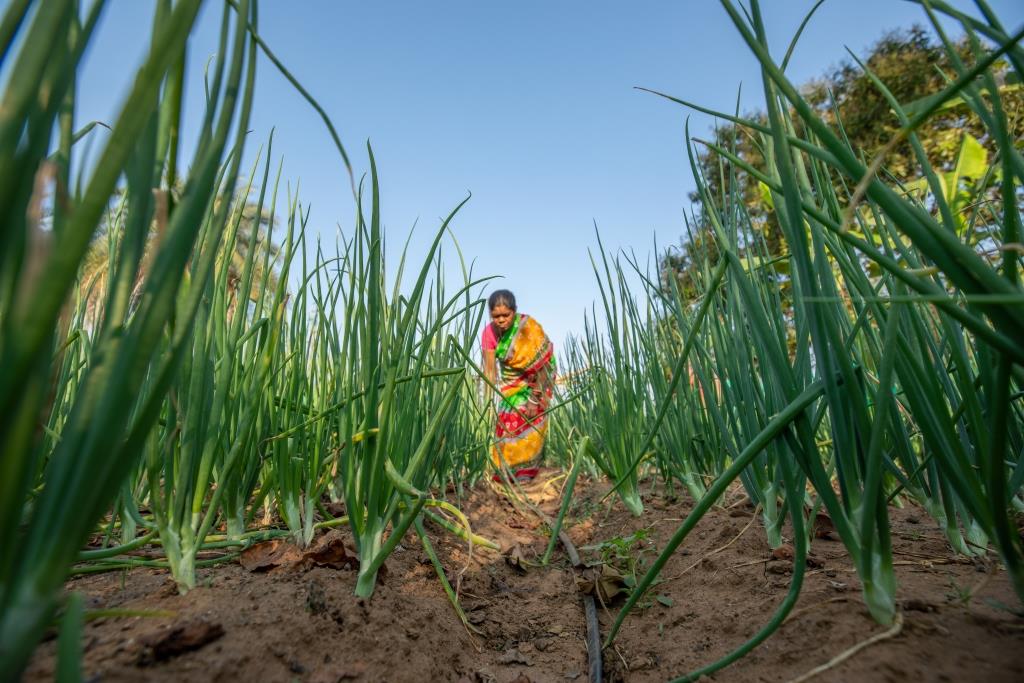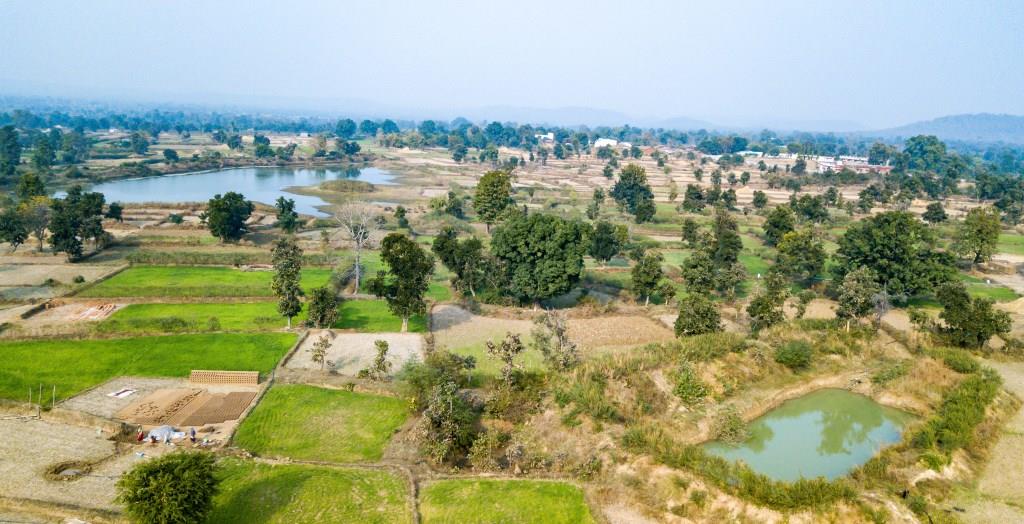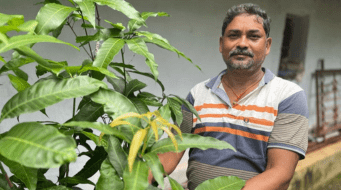Just like art and music, nature is the common thread that frees us from all physical and social boundaries, connecting us to the larger aspects of life. The vastness of forests and deserts, the depth of oceans, and the dynamism of biological diversity – nature is limitless and ever-embracing in all its forms. It treats all beings equally and gives more than we need.
“I felt my lungs inflate with the onrush of scenery—air, mountains, trees, people. I thought, ‘This is what it is to be happy.’” ~Sylvia Plath
It is not surprising that since time immemorial, nature has been given the utmost priority across countries, communities and religions. Humans have evolved with nature and have always acknowledged the importance of the natural ecosystems through rituals, traditional practices, festivals, art and folklore. The benefits we receive from nature are immense – encompassing economic, ecological, cultural, social and psychological values. Honestly, it is hard to even enlist and quantify the numerous advantages we derive from mother earth in our daily lives. But the sense of belongingness and the freedom to thrive is the most precious gift nature has bestowed upon us.

Nature is speaking – But are we listening?
A giving planet, by all means, it is unfortunate and extremely disturbing to witness the current plight of the earth which is deteriorating with each passing day. Ranging from catastrophic wildfires, frequent cyclones, floods and droughts, to the recent devastating pandemic and extreme heat waves – there are just enough signals that our planet is screaming for help.
The biggest evidence of climate change is the rapid rise in global temperatures, especially in the last few decades. The average rate of increase in ocean temperatures has doubled since 1981. It’s shocking to note that 2020 ranked as the 2nd warmest year in the 141-year record for the combined land and ocean surface. This extra heat is reducing snow cover and sea ice, bringing erratic weather conditions and unwanted changes in the habitat ranges for plants and animals.
The reason for this irreversible damage is us – the humans. Climate change, the bitter reality of today’s times, has not happened overnight. As we focused more on industrial and economic development, the responsibility of managing natural resources was conveniently forgotten. Rampant deforestation, intensified agriculture and livestock production, over-extraction of underground water, uncontrolled pollution and high wastage of food and other resources have been some of the major causes to bring this dangerous imbalance in the ecosystem.
Clearly, we have extracted more from nature without giving back much. And as a result, we are putting a lot at stake, including our own lives.
Are we doing enough?
While globally, it is acknowledged that we need urgent actions to mitigate climate change, the task of keeping a check on rising global temperatures is quite enormous. Interestingly, the COVID-19 pandemic slowed down the overall pace of life but did not reduce climate change and its impact.
Several countries, including India, have been actively participating in climate change mitigation and making strong commitments in this direction. However, despite the recent pledges made at COP26, it is estimated that the world is headed for 2.4°C of global warming – far in excess of the 1.5°C limit that countries have committed to.
The matter is more urgent than ever is still an understatement considering the seriousness of this issue. Clearly, despite all being done, there is a greater need to channel resources and energies to restore ecosystems at a much faster pace.
The good news is that nature can act as a climate solution. The IPCC Report 2022 details 43 cost-effective, nature-based solutions to limit global warming. The report also highlights the need to bridge the investment gap in promoting natural climate solutions. This is perhaps one of the last few opportunities to save the planet for future generations.

Eco-centric approach and collective action is the key
Adopting an eco-centric approach, where we do not place nature or humanity one above the other, is even more crucial for countries like India. We need to fulfill the developmental needs of a huge population while causing minimal disturbance to the environment.
Nature-based solutions can make development and conservation co-exist in harmony and bring us a step closer to achieving the SDGs. Ecosystem-based Adaptation (EbA) is a significant step in this direction that uses biodiversity and ecosystem services to build communities’ resilience to climate change adaptation.
WOTR has been implementing the EbA approach to empower rural communities to sustainably restore and nurture ecosystems through nature-based solutions. EbA effectively promotes ecocentrism by prioritizing all the major capitals – Natural, Social, Human, Physical and Financial.
And the outcomes have been encouraging! With WOTR’s extensive research and innovation in this space, adopting EbA has made significant advancements in ecosystem restoration, while successfully expanding livelihood opportunities and enhancing communities’ well-being.
However, the task of bringing about such transformation cannot be left to a select few. Given the diversity in landscapes, climates, demographics and socio-economic conditions of a region, nature-based solutions require careful examination, planning and implementation. The local policies also play a crucial role in the process. Hence, we need larger participation and that too, from diverse stakeholders to expedite achieving desired outcomes. We need governments, academia, grassroot organizations, thought leaders, policymakers and individuals to work in unison and protect mother earth for several generations to come.
Platforms like ECOBARI bring opportunities for stakeholders to pool ideas and resources and take collective action for the common mission of making this planet happy and healthy for all.

Nature: our only saviour
It is ironic, yet relieving that nature, despite facing innumerable exploitations by humans, is the only solution to combat this threatening stage of climate change. It’s time for us to be more sensible and responsible in our actions by treating mother earth with more respect and gratitude.
Given that India is among the top 10 countries in the world most affected by the climate crisis and is estimated to face many more extreme weather episodes, we must resolve to join hands and embrace nature by bringing out solutions for sustainable development and start paying back to mother earth. Nature can be our savior, but only if we care enough for it.
“One of the first conditions of happiness is that the link between man and nature shall not be broken.’”~Leo Tolstoy





